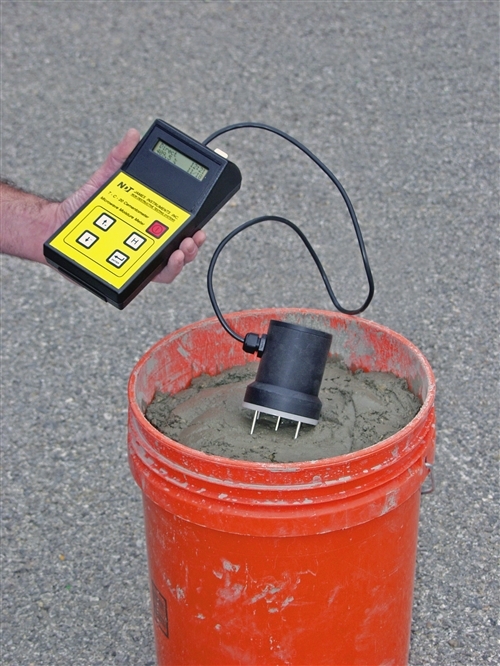Moisture Meter Acquiring Overview: What to Seek in High-Quality Instruments
The Ultimate Guide to Moisture Meters: A Comprehensive Overview and How They Can Conserve You Money
In the realm of structure maintenance, building and construction, and various markets, the relevance of properly determining moisture degrees can not be overstated. Wetness meters work as crucial tools in finding and keeping track of moisture web content in materials, helping in avoiding expensive problems and making certain the quality of items. Recognizing the nuances of various types of dampness meters, their applications, and the prospective cost-saving advantages they use can be a game-changer for businesses and professionals alike. Discovering exactly how these gadgets can not only improve processes yet additionally add to monetary cost savings is a trip worth starting.
Kinds Of Moisture Meters
One common type is the pin-type dampness meter, which gauges the electrical resistance between 2 pins placed right into a product. Pinless wetness meters, on the other hand, usage electro-magnetic sensor plates to check a bigger location without creating damages to the material's surface.

Furthermore, there are also specialized dampness meters created for particular products like dirt, grain, or hay. These meters supply accurate wetness analyses tailored to the distinct residential properties of the material being checked. Infrared moisture meters measure the thermal residential or commercial properties of a product to establish its dampness content non-invasively, making them beneficial for applications where pin or pinless meters may not appropriate. Recognizing the different kinds of wetness meters offered can help industries pick the most ideal tool for their certain dampness dimension demands.

Benefits of Using Dampness Meters
Moisture meters provide invaluable benefits in precisely assessing and keeping an eye on moisture degrees in diverse materials and atmospheres (Moisture Meter). One of the key benefits of utilizing dampness meters is the avoidance of possible damage brought on by excess dampness. By finding and resolving high dampness degrees early on, dampness meters help to avoid mold development, rot, and architectural damage in buildings, conserving both money and time on repairs. In addition, moisture meters aid in ensuring the quality of materials during construction or manufacturing processes. By properly determining moisture web content, these tools aid keep the honesty of wood, drywall, concrete, and various other products, decreasing the risk of failings or problems.
Furthermore, making use of moisture meters can bring about increased power effectiveness. By identifying areas with high wetness degrees, such as leaks or bad insulation, changes can be made to improve power preservation and decrease energy prices. In farming setups, dampness meters play a critical function in enhancing plant returns by enabling farmers to keep an eye on soil wetness levels and make notified watering decisions. Generally, the benefits of using wetness meters cover throughout different markets, supplying affordable remedies and promoting far better quality assurance techniques.
Exactly How to Pick the Right Dampness Meter
When picking a dampness meter, it's vital to make certain that the meter is suitable for the details material you will certainly be testing. Various materials have varying electrical properties that can affect moisture analyses, so picking a meter created for your material is important for precise outcomes. By meticulously examining these variables, you can select a dampness meter that meets your requirements and supplies exact wetness measurements for your jobs.
Correct Techniques for Moisture Meter Use

Expense Cost Savings With Wetness Meter Applications
How can the calculated application of dampness meters lead to significant expense financial savings throughout various markets? In the agriculture market, moisture meters aid in figuring out the optimal time for harvesting plants, avoiding over-drying or excess moisture that can impact the final product's high quality.
In a similar way, in construction, wetness meters help protect against pricey problems by detecting moisture degrees in building products, such as wood or concrete, which can result in structural concerns otherwise resolved without delay. By recognizing problem areas at an early stage, professionals can take corrective measures to stay clear of considerable repair services or substitutes, eventually conserving money and time.
Additionally, in the food handling sector, wetness meters are vital for checking product high quality and ensuring compliance with safety and security regulations. By properly determining wetness content in foodstuff, makers can stop spoilage, preserve quality, and decrease you can find out more waste, resulting in significant cost savings. In general, the tactical application of wetness meters is an important financial investment that can lead to considerable expense decreases and boosted efficiency across different sectors.
Final Thought
In final thought, dampness meters are beneficial devices for spotting and determining moisture levels in numerous products. By utilizing the best wetness meter and complying with correct strategies, users can properly stop pricey damages triggered by excess wetness. Purchasing a top quality wetness meter can cause substantial expense savings in the future by recognizing potential problems early and enabling timely remediation. Eventually, moisture meters are crucial tools for keeping the stability and long life of frameworks and products.
Dampness meters offer as vital devices in identifying and keeping an eye on moisture content in materials, helping in preventing costly damages and making sure the quality of products. Infrared dampness meters measure the thermal buildings of a material to identify its wetness web content non-invasively, making them beneficial for applications where pin or pinless meters may not be appropriate.Moisture meters provide vital advantages in accurately examining and keeping track of wetness levels in diverse products and settings. In farming setups, dampness meters play a vital function in enhancing plant returns by making it possible for farmers to keep track of dirt moisture degrees and make notified watering decisions.In final thought, wetness meters are beneficial tools for identifying and determining moisture levels in numerous products.